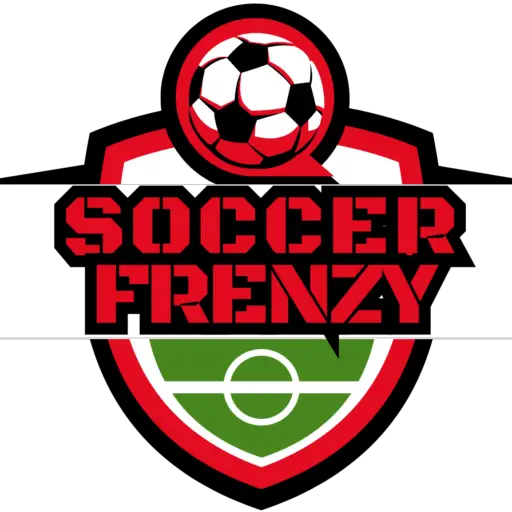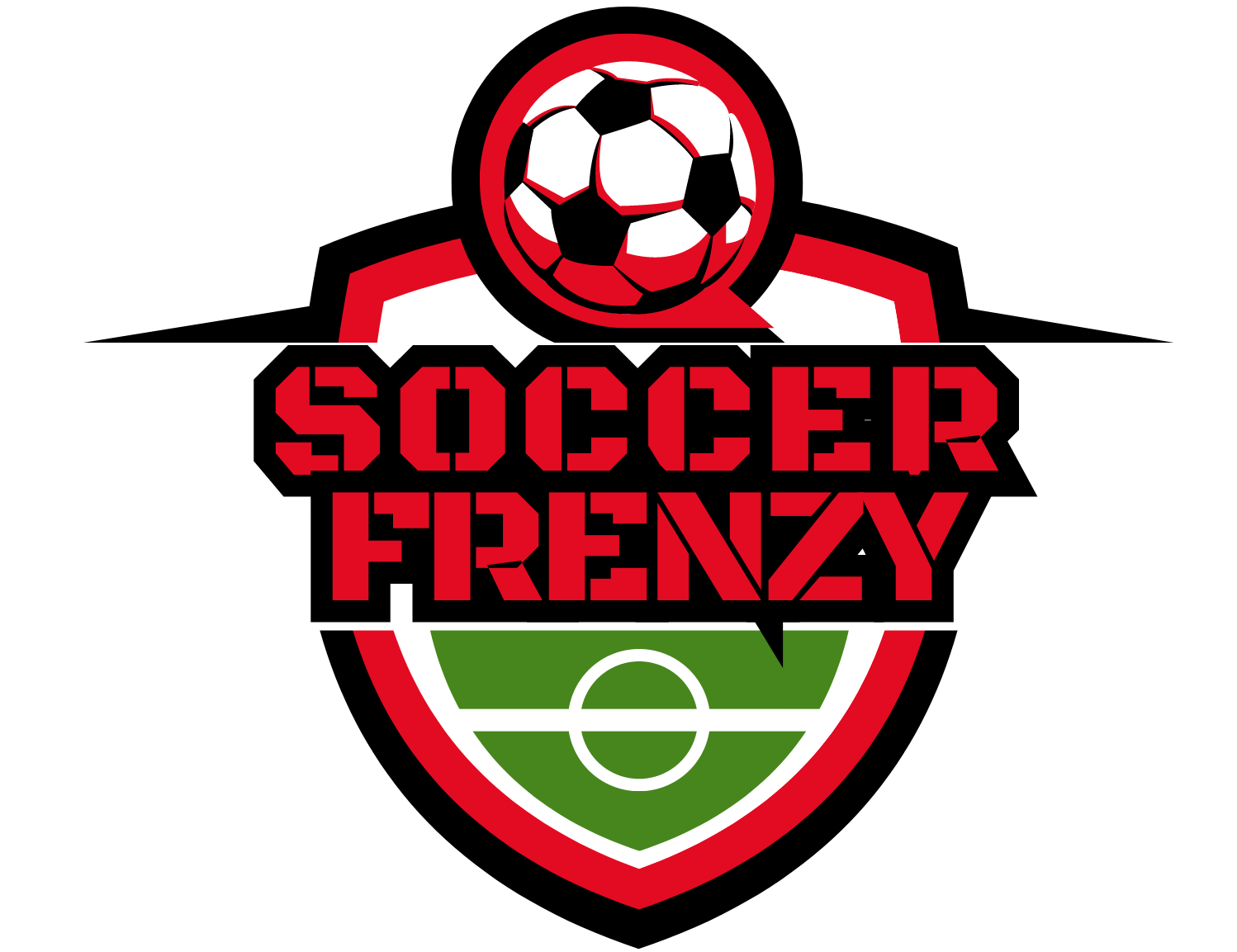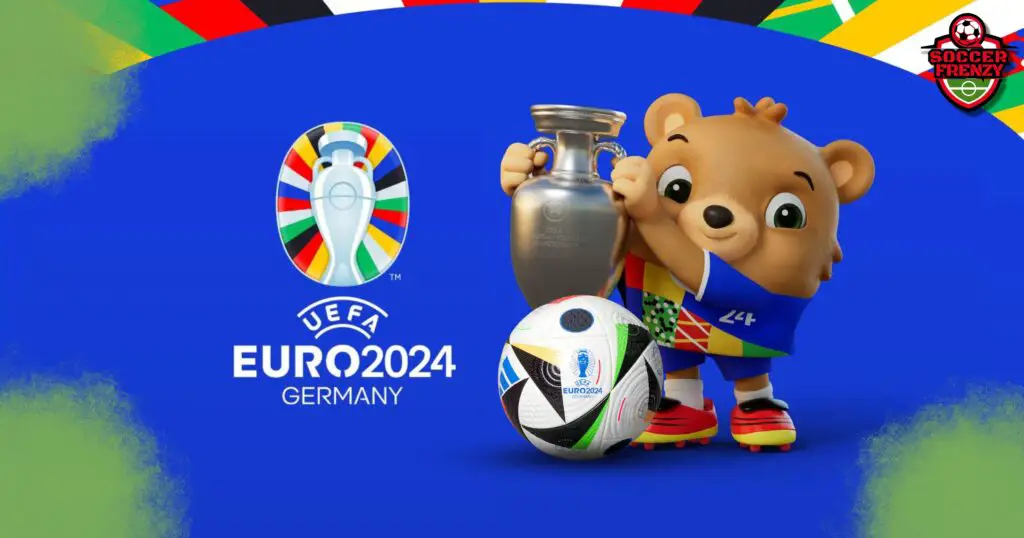EURO 2024: Official Ball, Mascot, and Song of The Tournament
Euro 2024: Official Ball UEFA EURO 2024 championship, Mascot, and Song of the Tournament.
The official ball for the UEFA EURO 2024 championship, “FUSSBALLLIEBE” (“love for football”), which will be used during the tournament, was unveiled in November 2023 by UEFA and Adidas at a special event in front of the Olympiastadion in Berlin. For the first time at a European Championship, a ball featuring “Adidas Connected Ball” technology will be used, providing video referees with accurate data in real-time during the match.
“Albärt”, a plush bear, will be the tournament’s official mascot.
The decision was made after a vote conducted among UEFA.com users and students across Europe through UEFA’s “Football in Schools” program. Albärt won 32% of the votes. Fans first got to know the mascot in June 2023 before Germany’s friendly match against Colombia, held in Gelsenkirchen.
The European Championship will have its song as with any major football format.
“FIRE” is a song by Italian producers “Meduza,” American pop-rock innovators “OneRepublic,” and German singer and songwriter Leonie Berger. The song has been released on all streaming platforms. It was written by Ryan Tedder of OneRepublic and produced by Meduza, combining the beloved house production of the Italian group, the captivating soundscapes of OneRepublic, and Leonie’s pop expertise. The song embodies the flame and spirit of both football and music fans.
Tournament Regulations
The 24 teams are distributed into six groups of four. Matches in the tournament’s group stage will be played from June 14th to June 26th, and fans should be prepared for some calculations, as the top two teams from each group plus the four best third-placed teams will advance to the Round of 16. The criteria for determining these teams are a higher number of points, better goal difference, a higher number of goals scored, a higher number of wins, fewer total disciplinary points from cards, and a final ranking in the European Qualifiers.
Interestingly, Germany, which did not participate in the qualifiers as the tournament host, is involved in the direct comparison, and more than the previous criteria is required. In that case, the decision will be made by drawing lots.
Another interesting point in the tournament’s group stage is that if two teams have the same number of points, goal difference, and goals scored and met in the group’s last match and finish level, their final ranking will be determined by penalty shootouts.
The tournament’s knockout phase will continue from June 29th to July 2nd. The quarter-finals will be held on July 5th and 6th, the semi-finals on July 9th and 10th, and the grand final on July 14th.
In the knockout phase, winners are determined by the well-known rules. If the match ends in a draw, extra time is played, and penalty shootouts are used if there is still no winner.
Five substitutions are allowed per match, made in a maximum of three intervals. In extra time during the knockout phase, a sixth substitution is allowed.
A player receiving a red card will miss the next match for their team, and the same applies to accumulating two yellow cards. For more serious offenses, the sanctions may be greater. Yellow cards are reset after the quarter-finals, so only a player sent off in the semi-finals will miss a potential final.
An interesting fact is that during this tournament, only captains will be allowed to communicate with the referee.
Captains, in turn, must ensure that their teammates neither harass the referee nor directly address them so that the referee’s decision can be explained to the players as quickly and accurately as possible. If a player violates this rule, the referee will caution them. If the captain is the goalkeeper, a field player must be designated as the contact person before the match.
Group Stage
Group A: Germany, Scotland, Hungary, Switzerland
Despite some unimpressive results in their recent matches, the hosts, Germany, are the undisputed favorites in this group and one of the main contenders for the title. Scotland also looks confidently towards the knockout stage, led by their excellent qualifying campaign, in which they suffered only one loss. However, the Scots will face tough competition from the Hungarian team, which participated in their third consecutive European Championship, and the Swiss team, which ranked higher in the FIFA rankings than Scotland and Hungary.
Group B: Spain, Croatia, Italy, Albania
Undoubtedly, the group of death! Only Albania is not ranked in the Top 10 of FIFA. Spain and Croatia contested the last UEFA Nations League final in June, with La Roja ultimately prevailing on penalties. Italy enters as the defending champions, proving they can win any major tournament they qualify for. As for Albania, their ability is evidenced by winning their qualifying group, including Robert Lewandowski’s Poland and former European runners-up Czech Republic.
Group C: Slovenia, Denmark, Serbia, England
“The Three Lions” is a favorite to win the title, according to almost all bookmakers. At first glance, this favoritism is supported by England landing in one of the weaker groups in the tournament. Denmark is probably the biggest threat to Harry Kane and company. Still, realistically, the situation in the group looks like a battle between the remaining three teams, besides England, for the second spot. Serbia boasts elite attackers in the form of their all-time top scorer, Aleksandar Mitrović, and Juventus striker Dušan Vlahović. However, they lack notable traditions in the tournament and are playing in the European Championship for the first time in 20 years. Meanwhile, Slovenia is the second-lowest-ranked nation to qualify directly after Albania, and any potential success and qualification for the knockout phase would be considered a surprise.
Group D: Poland, Netherlands, Austria, France
France is the other major favorite to win the championship, and their difficulties in the group are expected to come from the increasingly strong Netherlands team – whom France defeated twice in the Euro 2024 qualifiers, suggesting a smooth path for the French to advance to the tournament’s knockout phase. It would be astonishing if Austria somehow manages to sneak into one of the top two spots in Group D, but the more realistic chance is progressing as one of the best third-placed teams. However, this will be challenging, as Poland – a team with vast experience in major tournaments – emerges as one of the winners in the playoffs and is hungry for success.
Group E: Belgium, Slovakia, Romania, Ukraine
Like England in Group C, Belgium is a clear favorite to top their quartet in Group E. With all due respect to Slovakia and Romania, both of whom were eliminated in the last European Championship group stage, the Red Devils may face even less resistance than the English in reaching the Round of 16. Ukraine won the playoffs and successfully finished the qualifying campaign after failing to do so in the group stage. However, they troubled Italy to the maximum on the last day of the qualifiers, a match the Azzurri would likely have lost if not for the controversial decisions of the referee and his video assistant to dismiss the Ukrainians’ late penalty claims.
Group F: Turkey, Georgia, Portugal, Czech Republic
Portugal has a strong enough squad to win their second continental championship since 2016, with this likely being the farewell major tournament for 39-year-old Cristiano Ronaldo at the international level. The Portuguese were the best team during the qualifiers, finishing as the only undefeated and un-drawn team with a perfect record of 10 wins, an impressive 36 goals scored, and only two conceded. The Czech Republic reached the quarter-finals of the last European Championship.
At the same time, Turkey seems ready to take the next step after participating in the last two tournaments but failing to advance beyond the group stage. Relatively underperforming Georgia had the luck to qualify by winning a playoff after penalties against Greece, the champions from 2004, who had the misfortune of being in a qualifying group with France and the Netherlands.
Read More About Nations.


